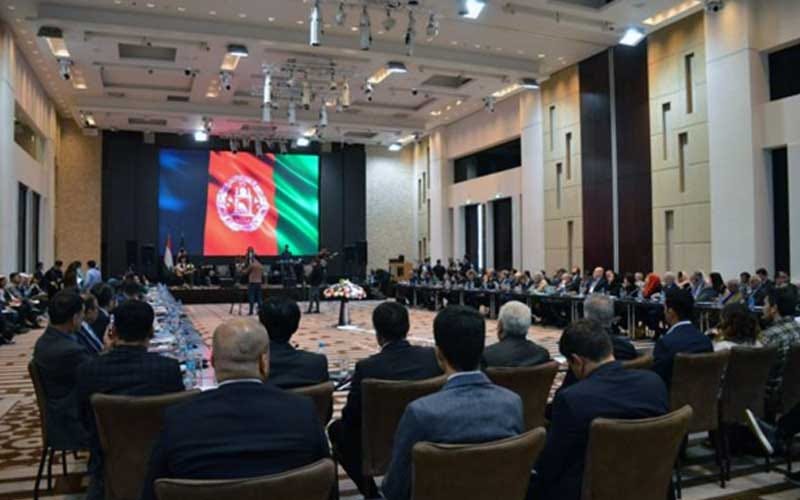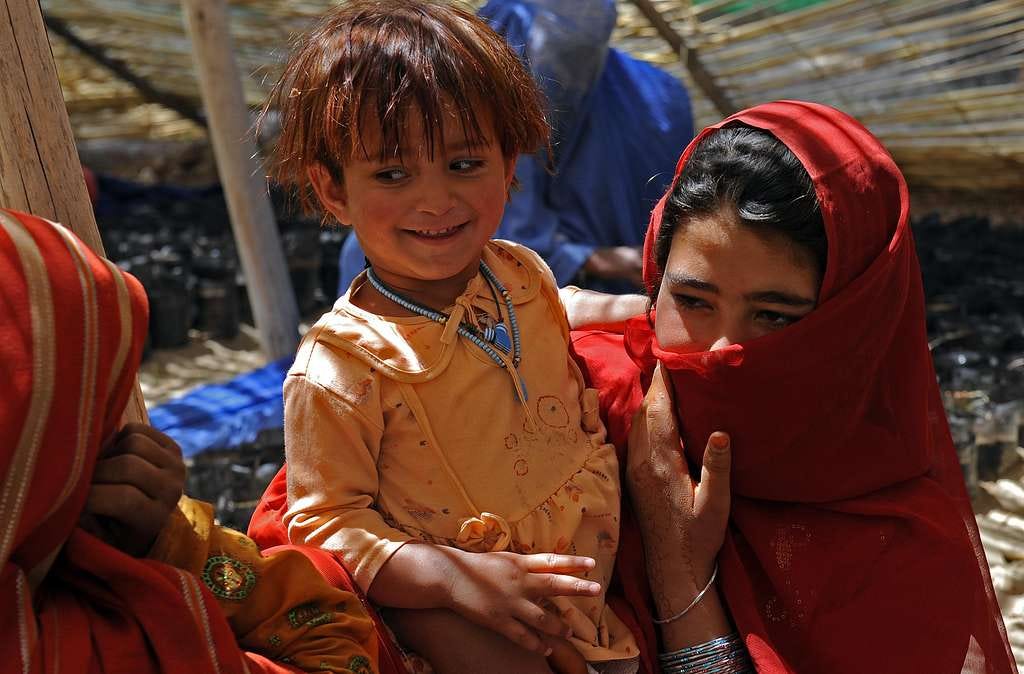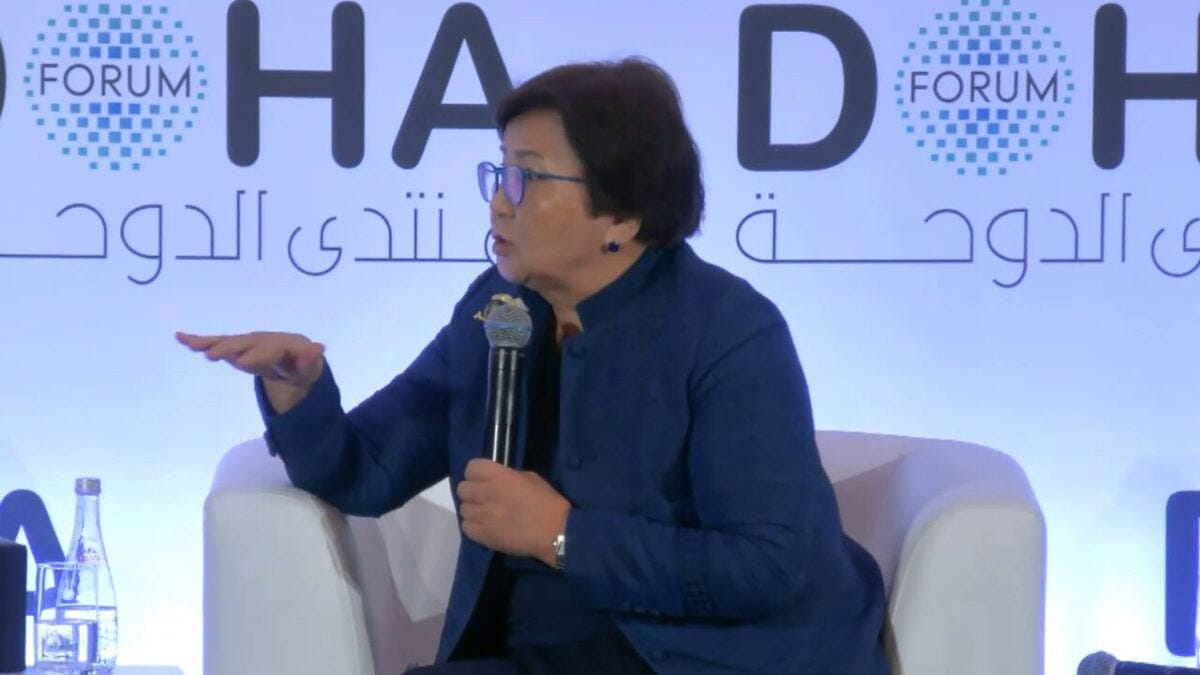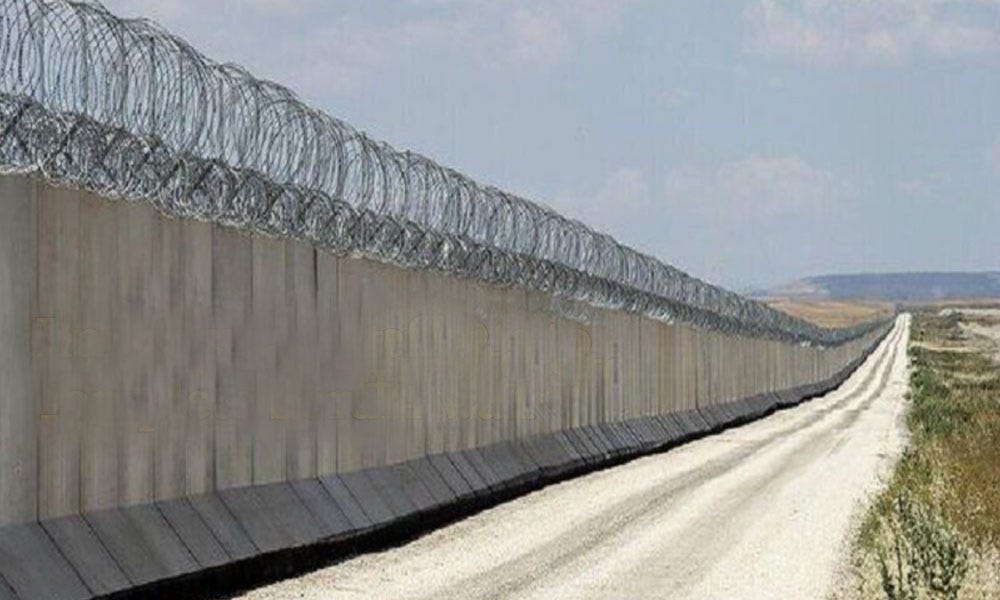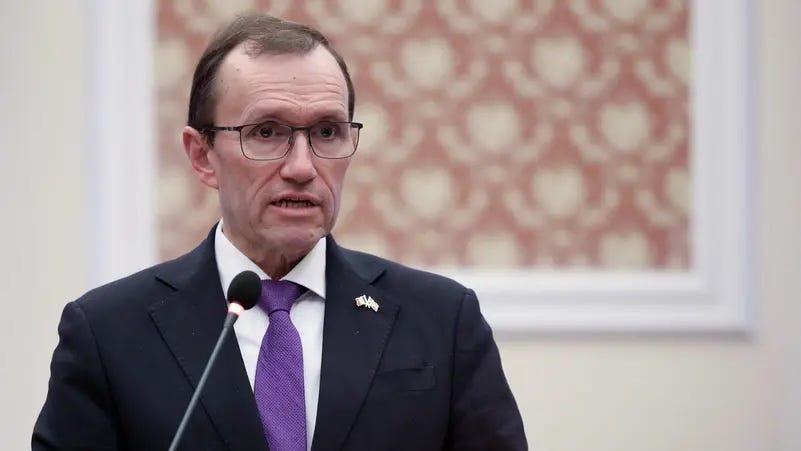The Week of December 2-8
Security and Conflict
ISKP and Taliban Clashin Faryab – On Friday, clashes between Taliban forces and ISIS-K fighters erupted in two areas of Afghanistan’s Faryab Province, leaving four dead: three Taliban members and one ISIS-K affiliate. In Almar District, the confrontation injured four Taliban fighters and two civilians.
Human Rights and Civil Liberties
Women Banned from Medical Training – On Monday, Taliban leader Hibatullah Akhundzada barred women from attending medical and semi-professional institutes, cutting off one of the last opportunities for women's higher education in Afghanistan. This follows the 2022 university ban, leaving Afghan women without access to professional training. The decision exacerbates Afghanistan's healthcare crisis, where female medical professionals are urgently needed, and deepens the humanitarian crisis. Experts have called it a devastating blow to women's rights and the struggling healthcare system. In response, female medical students staged protests in Kapisa, Badakhshan, Herat, Takhar, and Kabul, burning hijabs and singing in defiance of the restrictions. Reports indicate that three protestors in Takhar have been arrested, and Taliban intelligence is actively seeking others who participated.
Afghanistan International Report on Taliban Torture – A report by Afghanistan International highlights severe abuses under Taliban rule since their takeover. Based on interviews with 38 detainees and official Taliban documents, it outlines 31 methods of torture used in detention centers. Detainees, including nine women, faced prolonged abuse without legal justification. Complaints from 121 individuals cite arbitrary detention and torture. Methods included physical violence and denial of medical care, with few receiving hospital treatment.The full report can be accessed Here
Taliban Demand Weapons from Hazara Leaders in Uruzgan – The Taliban have reportedly detained former Hazara military personnel in the Lureh Shiw and Tagabdar areas of Gizab District, Uruzgan, demanding weapons. Families of former soldiers, even those with brief government service, are being pressured to surrender weapons. Some families have purchased weapons at high costs from Pashtun areas to meet these demands.
Flogging – On Thursday, one man was flogged in Wardak. On Saturday, five people were flogged in Kapisa and two in Kabul.
Internal Politics
Cabinet Meeting held in Kandahar – On Wednesday, Mullah Hibatullah, the Taliban's leader, called a meeting in Kandahar to clarify and gain support for his recent decree banning girls from attending medical institutes. The decision has caused divisions among Taliban officials in Kabul, with some ministers expressing dissatisfaction. Mullah Baradar, the deputy economic prime minister, is reportedly unhappy with the decree and may skip the meeting. Key Taliban figures, including Sirajuddin Haqqani, the ministers of higher education and education, and other leaders from security agencies and ministries, are expected to attend. Mullah Yaqub, the defense minister, has already arrived in Kandahar, and other ministers, including Hidayatullah Badri, will travel there. Before issuing the decree, Mullah Hibatullah consulted with relevant ministers. The decision to ban girls from medical education has sparked both domestic and international reactions. Pro-Taliban propagandists have praised unconfirmed reports from the Kandahar meeting, alleging that the Taliban Supreme Leader accused international NGOs in Afghanistan of espionage and considered closing them, viewing it as a fulfillment of their long-standing goal.
Acting Minister of Vice and Virtue Visits Provinces – On Monday, Khalid Hanafi, acting Minister for the Promotion of Virtue and Prevention of Vice, resumed provincial visits to enforce the Taliban’s virtue law. In Helmand, he urged scholars to educate the public and emphasized full implementation in government offices. Provincial committees, formed under Hibatullah Akhundzada’s orders, will meet within two weeks and report their outcomes in two months. Hanafi also visited Uruzgan province.
Continuing Issues With Purification Commissions – New conflicts have arisen within the Taliban's "Purification Commission," tasked with assessing the history of its commanders and fighters based on criteria like military experience and past actions. The commission has faced ongoing internal and ethnic tensions. Non-Pashtun fighters accuse the commission of making decisions based on language, ethnicity, and connections with senior leaders rather than merit. Several Taliban commanders and fighters, particularly in western Afghanistan, have expressed dissatisfaction with the commission's functioning, warning that it could lead to revolts and chaos in the provinces. One such commander, Sakhi Kuleng from Herat, voiced frustration over the commission’s delay in processing his purification form and accused Qari Zubair, the commission’s head in Herat, of being responsible for the deaths of three women after the general amnesty was announced. Kallang warned of potential disorder in Herat if the situation isn't resolved. Video recordings from other western provinces also show fighters mocking the commission’s procedures, indicating widespread dissatisfaction.
Coalition on Anti-Taliban Fighters Formed – On Friday, anti-Taliban groups announced the formation of the "National Assembly for the Salvation of Afghanistan," a coalition of 33 political parties and leaders aiming to resolve Afghanistan’s crisis and establish inclusive conditions. Prominent figures include Ahmad Massoud, Atta Mohammad Noor, Marshal Abdul Rashid Dostum, Karim Khalili, Salahuddin Rabbani, Omar Daudzai, Rahmatullah Nabil, Mohammad Mohaqiq, Abdul Rab Rasul Sayyaf, Mohammad Ismail Khan, Yunus Qanooni, Sarwar Danish, Rahela Dostum, Shah Jahan, Abdul Haq Shafaq, Tadin Khan, and Sadeq Madbar. The coalition is seen as a rebranded version of the 2021 National Resistance Council. Prof. Sayyaf called on the Taliban to engage in negotiations before facing dire consequences.
TTP Fighters Relocated to Ghazni – The Taliban are relocating TTP fighters and their families from Nangarhar to Kabul, northern Afghanistan, and Ghazni, sparking criticism from TTP supporters over targeted killings. Key settlements in Ghazni include Qarabagh on Hazara-owned land, Waghaz near transport routes, and repurposed housing near Khwaja Omari. These relocations, following the assassinations of senior TTP commanders like Omar Bajaur and Mawlana Shahid Umar, reportedly by Taliban intelligence, risk escalating tensions. Islamabad continues to accuse the Taliban of harboring TTP militants, exacerbating regional security concerns. An estimated 6,000 TTP fighters and their families remain in Afghanistan, further complicating Taliban-Pakistan relations.
International Developments
22nd Doha Forum Held – On Saturday, the 22nd Doha Forum in Qatar featured a session on the Taliban's "Vice and Virtue" law, focusing on its impact on women’s rights, humanitarian aid, and international relations. Participants included Rina Amiri, Georgette Gagnon, Mohammad Qasim Halimi, Shinkai Karokhail, Adela Raz, and Lyse Doucet. Discussions highlighted the international community's limited leverage over Taliban policies and the law's implications for Afghanistan’s future.
Russia Sends Humanitarian Aid to Afghanistan – On Wednesday, December 4, the Russian Ministry of Emergency Situations delivered its fifth humanitarian aid shipment to Afghanistan, consisting of 28 tons of food. The aid, sent under the directive of Russian President Vladimir Putin, aims to address the country’s ongoing humanitarian needs.
Austrian Aid Announced – Austrian Foreign Minister Alexander Schallenberg announced €5 million in aid for Afghanistan to support humanitarian organizations, with a focus on women’s protection and preventing migration to Europe. Since 2017, Austria has provided a total of €50 million in aid. Schallenberg condemned the Taliban’s severe restrictions on women and girls, calling Afghanistan the world’s worst violator of women’s rights.
Afghan Journalist Conference Held In Berlin – This week, the second symposium of the Afghanistan Journalists Support Organization was held in Berlin to address the challenges faced by Afghan journalists and exiled media under Taliban rule. Participants discussed media freedom, freedom of expression, and the importance of global attention and support networks. The event emphasized collaboration among journalists and international organizations, concluding with proposals to improve reporting and solidarity. Attendees praised the initiative for drawing attention to Afghanistan's media crisis.
Freedom of the Press
Arezo TV Office Raided – On Wednesday, Taliban intelligence and Ministry of Vice and Virtue officials raided Arezo Television in Karte 3, Kabul, mistreating staff, confiscating equipment, arresting seven employees, and shutting down the office. The Afghanistan Journalists Center condemned the raid as a violation of media rights, calling for the release of the detainees and the reopening of the network. The raid was reportedly conducted under accusations of broadcasting "immoral serials."
Journalist Released from Taliban Detention – Abduraziq Seddiqi, Director of Seday-e-Badghis Radio, was released after 34 days in Taliban custody following a Kabul court order. His arrest, linked to reports on women’s employment, was a violation of Afghanistan’s media laws, which protect journalistic freedom. The Afghanistan Journalists Center condemned the detention as unlawful, noting that six journalists remain imprisoned under the Taliban regime, despite legal guarantees of media independence.
Regional Developments
TTP Leader Killed in Afghanistan – On Tuesday, Shahid Umar Bajauri, a senior TTP commander and nephew of TTP founder Maulvi Faqir Muhammad, was killed in Kunar Province, Afghanistan, along with three associates. Local sources report that he was ambushed during a lunch invitation by a former Taliban intelligence member. Two others were injured, and a search for the attackers is underway. Umar, a former Bagram Jail detainee, held senior roles within the TTP after his release in 2021.
Kyrgyz President Statement on Afghanistan – On Sunday, Kyrgyz President Sadyr Japarov urged European and U.S. leaders to recognize the Taliban-led Islamic Emirate and to address Afghanistan's humanitarian crisis. In an interview with TRT Avaz, he emphasized the need to release Afghanistan’s frozen financial reserves to aid reconstruction and improve living conditions, highlighting the global responsibility to address the country's challenges.
DABS Head Visits Turkmenistan – Abdul Bari Omar, CEO of the Taliban-run DABS, visited Turkmenistan to renew the 2025 electricity import contract and discuss the TAPI project with Turkmenistan's electricity chief, Durdy Elyasov. This visit comes amid escalating power outages in Kabul and the suspension of Turkmen electricity to Herat due to cold weather.
Miscellaneous
200 New AIDS cases in Afghanistan This Year – On Monday, World AIDS Day, the Taliban’s Ministry of Health reported 200 new cases of AIDS in Afghanistan this year, bringing the total to 3,700. The spokesperson claimed that the number of cases had decreased compared to previous years and highlighted the presence of eight treatment centers and 61 diagnostic centers. The Ministry also emphasized awareness programs and the ongoing care of 1,400 patients currently receiving treatment.
UAE Opens Maternity Hospitals – The UAE has inaugurated 10 maternity centers across seven Afghan provinces, including Herat, Kandahar, and Jalalabad, as part of its “Comprehensive Development Program” to strengthen Afghanistan’s healthcare infrastructure. This initiative comes amid a worsening healthcare crisis, worsened by the Taliban's ban on women attending medical institutions, which has exacerbated the acute shortage of female healthcare practitioners. The ban has drawn criticism from organizations like Médecins Sans Frontières, highlighting its negative impact on healthcare access and quality.
NEXT WEEK
In Pakistan, authorities are preparing to implement new restrictions on Afghans residing in Islamabad. Anti-Afghan sentiments are running high, and Afghans in the city face increasing pressure and extortion attempts from landlords and others exploiting the situation. Additionally, Afghans may come under heightened scrutiny as Pakistani authorities have blamed them for violence during the recent PTI protests. Afghans in Pakistan are advised to exercise caution in their communications and movements.
In Afghanistan, crackdowns on opposition, including female medical students, are intensifying. Reports indicate house-to-house searches in several cities to locate girls who participated in recent protests.
As winter approaches, travel conditions in Afghanistan are deteriorating. This week, the Salang Tunnel was closed for 24 hours due to heavy snowfall, and further closures are expected in the coming weeks. Travelers to or from northern Afghanistan should remain cautious and monitor weather conditions closely.
REGIONAL ROUNDUP
IRAN
Statement on Afghan Prisoners in Iran – On Wednesday, Askar Jalalian, Iran’s Deputy Minister for Human Rights, revealed that Iran is holding 8,000 foreign prisoners, the majority of whom are Afghans. Iran has prepared a list of 500 Afghan prisoners for transfer, pending identity verification by the Taliban. The majority of offenses are related to drug trafficking. Jalalian confirmed that once the Taliban completes the review, Iran is ready to begin the first phase of transfers, which will include prisoners with fines.
Military Drills on Afghan-Iranian Border – On Tuesday, the Iranian Army conducted military drills near the Afghanistan border, focusing on countering terrorist threats. Coordinated with neighboring nations, including the Taliban government, the exercise showcased military equipment and helicopters. Held in Khorasan Razavi province, the drills align with Iran's ongoing border wall construction, with 65 km completed and 300 km planned. The exercises underscore Iran's heightened border security measures and regional collaboration.
Taliban And ISKP Clash – On Friday in Aq Kutal, Khyber District, a Taliban intelligence officer and an ISIS-K member were killed. Taliban reinforcements subdued the ISIS-K fighter, reportedly burning his body, while two women from his family sustained injuries. Local Taliban officials have not commented. The skirmishes occurred in areas previously targeted by ISIS-K, including one attack two months ago that killed two Taliban members. These incidents underscore the ongoing tension between the two groups in northern Afghanistan.
PAKISTAN
Afghans Required to Obtain A No Objection Certificate to Remain in Islamabad – Last week, Pakistan's Interior Minister, Mohsin Naqvi, announced that Afghan citizens must obtain a No Objection Certificate (NOC) to remain in Islamabad beyond December 31, 2024. This decision follows the arrest of 19 Afghans involved in protests. Naqvi emphasized strict enforcement, with further details to be shared soon. Afghans without proper documentation will be barred from residing in the capital starting January 2025. Little information has been provided regarding the steps necessary to obtain the required documents.
Investigation on PTI Protest Deaths – Pakistan’s federal cabinet, led by Prime Minister Shehbaz Sharif, has launched an investigation into claims of protester fatalities among PTI supporters during the November 24–27 protests. The government dismissed reports of 12 deaths as “false” and blamed PTI leaders for spreading misinformation. The protests, involving 10,000 PTI supporters demanding Imran Khan's release, turned violent, prompting the use of tear gas by security forces. Legal actions against PTI leaders, including non-bailable arrest warrants, followed the unrest.
Afghan Detained in Pakistan – Pakistani authorities detained over 800 Afghan migrants amid PTI protests, sparking allegations of ethnic profiling, particularly targeting Pashtuns. Pakistan’s interim Interior Minister linked Afghans to the protests, claims denied by the Taliban-led Ministry of Refugees, which criticized the use of migrants as political tools. Lawmaker Mohsin Dawar condemned the crackdown as discriminatory, further intensifying tensions in Pakistan’s already strained relations with Afghanistan.
SPOTLIGHT ANALYSIS
Divisions among Taliban opponents: A key factor in their endurance
Mohammadullah Afzali
The enduring rule of the Taliban in Afghanistan, marked by its extremist and exclusionary policies, is undoubtedly fueled by various factors. Among these, the disunity among the Taliban’s opponents stands out as a critical element. While other dynamics also contribute to the Taliban’s ability to retain power, this piece focuses on how internal divisions among their adversaries have worked to the Taliban’s advantage.
Fragmentation among opponents
Opposition to the Taliban comes from a wide array of groups and individuals with divergent goals and strategies. Some focus on armed resistance, while others emphasize political and diplomatic efforts. This lack of coordination and unity has significantly weakened their collective ability to challenge the Taliban effectively.
Key opposition entities, such as the High Council of Resistance for the Salvation of Afghanistan, the National Resistance Front, the Freedom Front, and the National Movement for Peace and Justice, operate in isolation, often unaware of each other’s initiatives. Additionally, smaller civil society movements, human rights activists, former political parties, and newly formed armed groups have created fragmented structures with little to no communication or cooperation.
Afghanistan has long lacked unified, charismatic leadership capable of rallying diverse factions under a single banner. Historically, many leaders have been undermined by internal rivalries and foreign interference. Today, the absence of strong, cohesive leadership among Taliban opponents is more apparent than ever. Instead of working collaboratively, various leaders often engage in internal competitions, further splintering the opposition and bolstering the Taliban’s position.
AFGHAN NEWS
Taliban School Ban Leads to 25% Rise in Child Marriage in Afghanistan, USAID Reports
Kabul Now
The Taliban’s ban on girls’ education has resulted in a 25% rise in child marriage and a 45% increase in childbearing in Afghanistan, according to the US Agency for International Development (USAID).
In a video shared by the US Embassy for Afghanistan on X, Joel Sandefur, USAID Mission Director, said the statistics indicate an alarming situation, highlighting the urgent need to protect the rights of Afghan girls.
“Beyond the harm to individual women and girls, early marriage and childbearing leads to serious social and economic harm to the entire society,” he said.
UNICEF warns over 12 million Afghan children to require aid in 2025
Mujeeb Rahman Awrang Stanikzai
More than 12 million Afghan children will need humanitarian assistance in 2025, part of a larger crisis that will leave 22.9 million people in need across the country, according to a report from the United Nations International Children’s Emergency Fund (UNICEF).
The report paints a grim picture of Afghanistan’s humanitarian outlook, noting that the drivers of need have shifted from conflict to economic hardship, climate-induced shocks, and significant operational barriers.
“A combination of politics and policy has upended the lives of children and their families across Afghanistan,” UNICEF said, adding that women and girls continue to face severe restrictions on their rights and freedoms.
UN envoy highlights challenges for Afghan women, girls at Doha Forum
Mujeeb Rahman Awrang Stanikzai
Roz Otunbayeva, the head of the United Nations Assistance Mission in Afghanistan (UNAMA), addressed the ongoing challenges facing Afghan women and girls during the 22nd Doha Forum, shedding light on the state of education and humanitarian needs in the country.
Speaking at the session, Otunbayeva revealed that online education for girls continues despite significant restrictions imposed by the Taliban. However, she refrained from sharing details, citing concerns that the Taliban government might shut down these initiatives.
“I cannot tell you the secrets of online education,” she said, warning of potential reprisals by the authorities.
REGIONAL NEWS
Kabul moves towards stronger ties with Delhi, regional dynamics shifting
Abhinandan Mishra
The rapid forward movement in bilateral ties between India and Afghanistan is likely to lead to a mutually beneficial scenario, including in the field of strategic cooperation between the two countries, something that was deemed as impossible when the Taliban came to power in August 2021.
Iran steps up efforts to tighten security along border with Afghanistan, Pakistan
Ariana News
Iran’s border security operations along its shared border with Afghanistan and Pakistan have been ramped up with 65 kms of the border wall already having been completed.
According to Iran media, Tehran’s plan to block the eastern border will eventually consist of a 300 km-long wall along with the use of advanced technology and precise military drills.
On November 2, Interior Minister Eskandar Momeni said Iran would complete construction of a border wall along its eastern frontiers by the end of September next year.
Iran frees rapper Toomaj Salehi jailed for supporting protests
The Iranian rapper Toomaj Salehi, who was sentenced to death in April for his support of anti-regime protests, has been released from prison by the Iranian authorities.
Salehi was sentenced by a revolutionary court in April for backing the Woman, Life, Freedom protests in September 2022 after the death of Mahsa Amini, a young Kurdish woman who died in police custody.
INTERNATIONAL NEWS RELATING TO AFGHANISTAN
For over 40 years, the Private Sponsorship of Refugees (PSR) Program, a model for other countries around the world, has brought hope and opportunity to hundreds of thousands of refugees. This success has also led to a large application inventory and growing processing times.
The Government of Canada’s immigration levels plan establishes the number of privately sponsored refugees who can arrive in Canada each year. Due to ongoing high demand, applications from private sponsors continue to exceed the private sponsorship spaces available under the immigration levels plan, resulting in a large and growing application inventory and lengthy processing times.
Norway rejects Taliban envoy over women and girls’ treatment
Alarabiya News
Norway announced on Thursday that it would refuse to accredit any new Afghan envoy appointed by the Taliban as relations remain frozen in protest at the treatment of women and girls.
The Afghanistan embassy in Oslo had been run by official loyal to the former western-backed government until it closed on September 12.
Afghani to the Dollar: $1 – 70.08 AFN (as of 8 December 2024)



